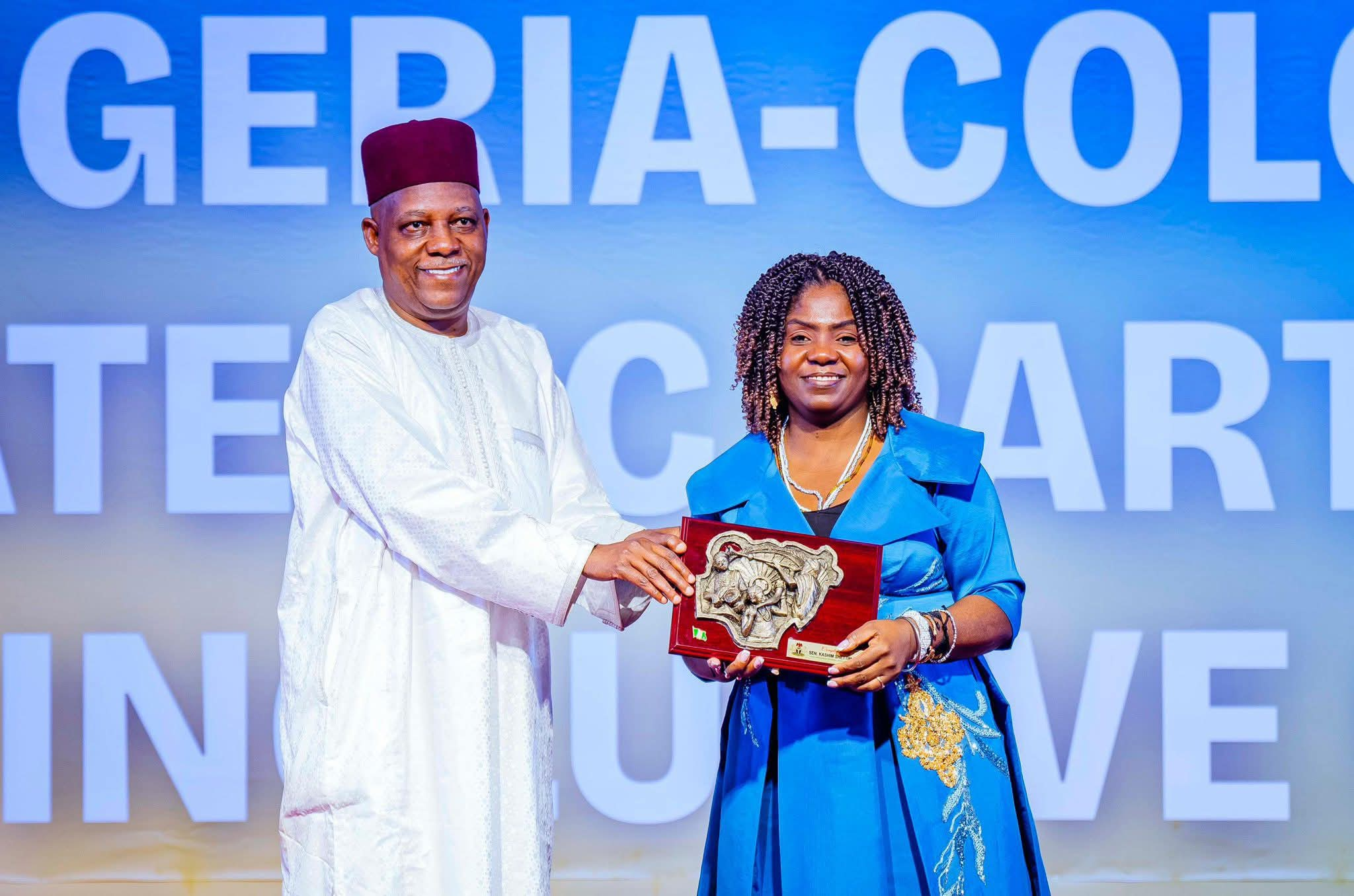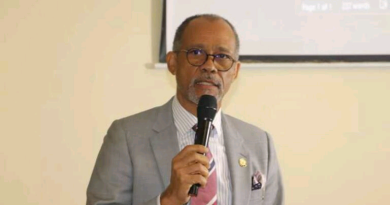Colombia’s First Female Vice President Francia Márquez Visits Nigeria: Trade, Youth & Women’s Empowerment Top Agenda
Abuja, Nigeria — From August 30 to September 2, 2025, Nigeria is hosting Her Excellency Francia Márquez, the first female Vice President of Colombia, in a historic official visit aimed at deepening diplomatic and economic cooperation between the two nations.
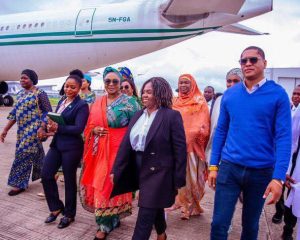
Márquez, accompanied by her spouse, Rafael Pinillo Ocoró, arrived in Abuja on Saturday with a high-powered delegation of cabinet ministers, senior government officials, and business leaders.
The four-day engagement is focused on strengthening ties in trade, agriculture, education, energy, culture, social justice, youth, and women’s empowerment, marking a new chapter in South-South collaboration.
A New Dawn for Nigeria-Colombia Relations
Speaking on Sunday night during a gala dinner in honour of the Colombian delegation at the Presidential Villa, Vice President Kashim Shettima described Márquez’s presence as “historic” and “a new dawn” in bilateral relations.
He declared that the visit would open a new diplomatic chapter for both countries, fostering “deeper political cooperation, bolder economic ventures, and richer people-to-people exchanges.”
Conveying the goodwill of President Bola Tinubu and Nigerians to the visiting delegation, Shettima noted:
“Tomorrow’s engagements will be the gateway to a new chapter. More than ever, Nigeria is inspired to plant the seeds of trust, water them with dialogue, and nurture them into fruits of prosperity that our children and grandchildren shall one day harvest.”
The Vice President recalled that Nigeria and Colombia had maintained diplomatic relations for 51 years, stressing that while geography separated them, shared humanity and destiny had always bound them together.
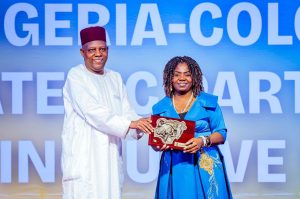
He later raised a toast to stronger ties, praying that the engagements would yield the “fruits earnestly desired” by both nations.
árquez: A Strategic and Historic Mission
On her part, Vice President Francia Márquez described her visit as both strategic and historic, underscoring the shared heritage and values between Nigeria and Colombia.
As a woman of African descent, she emphasized that her mission was to strengthen cooperation in peace, social justice, tourism, health, education, and culture. Márquez also pledged that Colombia would leverage its position in South America to deepen trade with Africa and expand its diplomatic footprint in Nigeria.
She conveyed the condolences of President Gustavo Petro to the government and people of Nigeria on the passing of former President Muhammadu Buhari.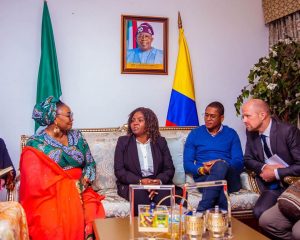
In a moving reflection, Márquez said:
“My grandparents left Africa for Latin America in shackles. I am happy to return to Africa as a free woman and Vice President of a Latin American country.”
Cultural Diplomacy and Shared Values
Deputy Chief of Staff to the President (Office of the Vice President), Ibrahim Hadejia, described the dinner as a celebration of the “homecoming” of the Colombian Vice President. He said the event highlighted the shared values and untapped potentials of both countries, which, if fully harnessed, could transform key sectors of their economies.
He further noted that the evening showcased the richness of Nigerian and Colombian cultures in arts, music, and cuisine, proving that diplomacy between both nations “goes beyond policy to embrace cultural exchange.”
As part of her engagements, Vice President Márquez also visited the National Mosque in Abuja, further reinforcing the cultural and diplomatic significance of her visit.
Conclusion
The visit of Colombia’s first female Vice President marks a significant step in Nigeria-Colombia relations. With renewed focus on trade, youth empowerment, women’s leadership, and cultural exchange, both countries are poised to unlock a future of shared prosperity and stronger South-South cooperation.

